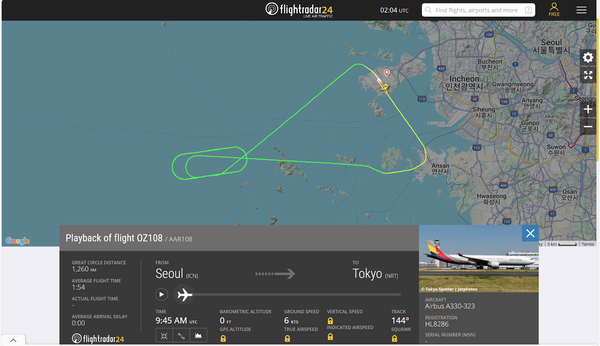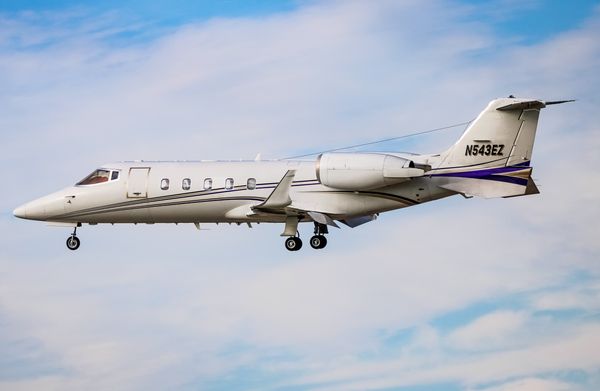.jpg)
Following a series of pressing hearings regarding its questionable manufacturing and oversight processes, Boeing has agreed to plead guilty to a criminal fraud charge concerning two fatal crashes of its 737 MAX aircraft. Here is all you need to know regarding this massive aviation news headline.
Guilty Charge
Boeing accepted a guilty plea to a criminal fraud charge as part of a plea deal with the United States Department of Justice (DOJ).
This charge specifically was a charge of conspiracy by the manufacturer to defraud the United States for its role in two fatal 737 MAX crashes. The Justice Department reported such in a court filing.
Boeing will pay up to $487 million in fines. While a significant amount, it is far below the $24.8 billion families of the 737 MAX crash victims wanted Boeing to pay. As such, the Department of Justice reports that the families have opposed this deal.
Erin Applebaum, representing families of the crash victims, said the following about this plea deal:
"We are extremely disappointed that the DOJ is moving forward with this wholly inadequate plea deal despite the families' strong opposition to its terms. While we're encouraged that Boeing will not be able to choose its monitor, the deal is still nothing more than a slap on the wrist and will do nothing to effectuate meaningful change within the company."
As hinted at by Ms. Applebaum, the agreement stipulates that Boeing will have to operate under the oversight of an independent monitor. The government will choose this monitor and will be serving their position for three years.
The two crashes saw 346 souls perishing, with 189 lost onboard Lion Air Flight 610 in 2018 and 157 onboard Ethiopian Airlines Flight 302 a few months later in 2019.
These crashes were attributed to the malfunctioning of the 737 MAXs because of faulty MCAS software. This software was intended to correct an existing design flaw in the MAX, yet it relied only on one external sensor.

When Boeing launched the 737 MAX, it failed to notify the Federal Aviation Administration (FAA), airlines, and their pilots about MCAS to bypass time-consuming safety regulatory checks.
As such, when these two flights went down, the pilots fought against the MCAS system without knowing what they were fighting against.
Paul Cassell, a law professor at the University of Utah, called this agreement a "sweetheart deal" and one that failed to properly recognize Boeing's conspiracy, leading to the deaths of 346 people. He added that this "deceptive and generous deal" was not in the public interest.
DOJ's Defense
Despite the pushback, the Justice Department argues that the penalties Boeing agreed to were the most serious available.

The Department argued that this deal won various improvements, such as monitoring oversight and pressuring Boeing to spend more time on safety and compliance.
The DOJ added that this resolution "protects the American public" and that the conviction demonstrates its commitment to holding Boeing accountable.
Its statement also raised the possibility of more legal issues soon for Boeing and its executives. While no individuals are facing criminal charges, the DOJ is resolving only with the company and not providing immunity to any individuals.
Boeing's current CEO, Dave Calhoun, is expected to step down at the end of this year.
Comments (0)
Add Your Comment
SHARE
TAGS
NEWS boeingboeing 737 maxdave calhounboeing dojdepartment of justiceRECENTLY PUBLISHED
 Tokyo-Bound Asiana Flight Experiences Engine Failure
An Asiana Airlines flight bound for Tokyo experienced an engine failure, prompting its return to Incheon International Airport.
NEWS
READ MORE »
Tokyo-Bound Asiana Flight Experiences Engine Failure
An Asiana Airlines flight bound for Tokyo experienced an engine failure, prompting its return to Incheon International Airport.
NEWS
READ MORE »
 Learjet Owned By Vince Neil Crashes Into Gulfstream Jet, 1 Fatality Confirmed
On February 10th, around 14:30 local time, a Learjet private jet aircraft crashed into another private jet after landing at Scottsdale Airport (SCF) in Arizona.
NEWS
READ MORE »
Learjet Owned By Vince Neil Crashes Into Gulfstream Jet, 1 Fatality Confirmed
On February 10th, around 14:30 local time, a Learjet private jet aircraft crashed into another private jet after landing at Scottsdale Airport (SCF) in Arizona.
NEWS
READ MORE »
 Seattle Plane Strike 2025: Japan Airlines and Delta Collision Raises Safety Concerns
Seattle-Tacoma International Airport saw a concerning incident on Wednesday morning when a Japan Airlines (JAL) plane clipped a parked Delta Air Lines jet while taxiing. Thankfully, no one was injured, but passengers described the collision as a frightening experience.
NEWS
READ MORE »
Seattle Plane Strike 2025: Japan Airlines and Delta Collision Raises Safety Concerns
Seattle-Tacoma International Airport saw a concerning incident on Wednesday morning when a Japan Airlines (JAL) plane clipped a parked Delta Air Lines jet while taxiing. Thankfully, no one was injured, but passengers described the collision as a frightening experience.
NEWS
READ MORE »

.jpg)

